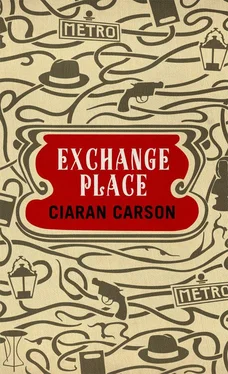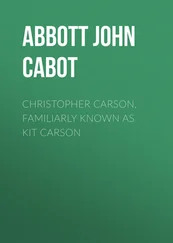Today I gave the Livingstone suit its first outing. I’d bought it on eBay and it arrived neatly parcelled two days ago, a beautiful chestnut brown herringbone with a faint orange windowpane check, jacket with slanted hacking pockets, working cuffs, high-rise narrow-cut trousers with turn-ups. The seller, Bookman17, knowing that a good picture is worth a thousand words, had provided a comprehensive photographic gallery of the item displayed on a tailor’s dummy. There were close-ups of the weave. I was mesmerized. I made it an item on My eBay Watch list, and returned to it and watched it for a good few minutes every day of the seven-day auction, imagining myself clothed in it and how it would feel on. I was the only bidder. The measurements given in the description accorded to mine, and when I tried on the suit it was nearly a perfect fit. A bit neat in the body of the jacket, but the sleeve length perfect, ending at the wrist bone, the trouser bottom resting nicely as it should on the shoe. When I looked, I discovered, sewn into the inside jacket pocket, a handwritten tailor’s label which read Major R.E. Livingstone 9/10/66 , on which day I was eighteen, so I could as easily call it the birthday suit.
The Livingstone suit forced me to adopt a somewhat military posture, but that would relax with time as I wore it in. I could see it being worn by a character in my book, one John Harland, who had vanished without trace some ten years ago. And in wearing the suit, as with other items of vintage clothing I had purchased over the years, I would think myself into the character of Harland: a kind of method writing, not unlike method acting, where the actor — think Brando, Newman, Pacino — immerses himself in the part by drawing on his own emotions, discovering, through affective memory, those experiences in his own life which correspond to the fictional experiences of the character he is to portray, and reliving his own experiences onstage or onscreen as the ‘character’. He lives in a parallel world. Think De Niro in Taxi Driver looking into a mirror at himself, saying, ‘You talkin’ to me? You talkin’ to me? You talkin’ to me ?’
I took another look at myself, John Kilfeather, in the mirror. The russet brown and orange of the tweed glowed like autumn leaves in the autumn sunlight that flooded in through the bay window, the cloth seeming to undulate and vibrate as I moved this way and that, and not for the first time I wished I could see myself in the round, as another might see me, or as I might were I to stand outside myself. I felt high. I undid the cuff buttons of one sleeve and rolled it back in the manner of Jean Cocteau, imagining my hand emerging from the sleeves as his hand, that elegant long-fingered hand theatrically yet nonchalantly posed, and it was not difficult to imagine myself floating through my 1930s cheval mirror — how many faces has it seen? — to see or be the Jean Cocteau whose Orphée appeared in 1950, Orpheus who travels to the Underworld through a mirror, Orpheus who ignores his wife to listen for messages on the car radio in the car parked in the under-floor-level garage, enigmatic phrases travelling through the static of the Underworld. Never music, always words. L’oiseau chante avec ses doigts. Deux fois …
As it is, I am walking through Belfast in the Livingstone suit, the birthday suit. I feel all yin and yang, both rough and smooth as the October sun flickers on some surfaces and glows on others and the suit ripples to a sympathetic rhythm as it moves and I move with it as if it were a second skin. I stroll down Royal Avenue and barely a soul gives me a glance, let alone a second glance, for barely a soul sees me. I am not on their radar. But you can be sure that if I saw someone wearing such a suit, you can be sure I would notice, but then everyone is not me, nor I them. I am a ghost. Barely a soul takes me under their notice, only the one I hear playing the fiddle from afar, who cannot yet see me, nor I him, but I know his music of old, I know that dance I heard last week, and heard the week before, but this time it is different, as it was before, yet will be as it always was, the melody that haunts itself in its own ever-changing repetitions, intertwining, unfolding, recapitulating, speaking of Transylvania in the loops and spirals of the melody, lingering for all its quickness, the bow leaning into and off the notes in little elegant embellishments more audible with every step I take or dance, I picture his long-fingered left hand seeming barely to move, the bow hand minimal in its movement, and I wonder again how he does it, and I walk towards the source, knowing he has seen me coming through the crowd, timing the tune to end as I am about to drop a coin in his cup and take off my hat to him, whereupon with some aplomb he synchronizes the doffing of his hat with mine and I say, Nice music as always, and he will say, Thank you, sir. We both know a good hat when we see one. Other than that I glide through the crowds unacknowledged, haunting the same streets and alleyways I have been walking for how many weeks I do not know.
I was in town to see Beringer the watchmaker, and as I walked I thought of when I had last been in his workshop. I had climbed into the whispering, ticking attic and had taken in the various faces of the clocks — carriage clocks, mantel clocks, clocks under glass domes, clocks supported by Grecian columns, clocks with dials of ceramic and enamel — and had remarked on how well he had them synchronized, or so it seemed to me. Yes, but if you listen, said Beringer, they all tick out slightly of synch, if only in a manner of speaking, and if you look at the relative positions of the second hands, you’ll see they’re all out of synch too, and even if any two were in synch, why, that would just be coincidence, because real time is fuzzy time, strictly speaking it’s not the same time in any other corner of the attic as it is in this, since time is a function of space, if you believe Einstein, so strictly speaking we all live in different time zones, since our bodies occupy different spaces. Timewise we live in a serial fuzz. He giggled.
We talked a little of the Roma fiddler, whose playing I knew Beringer knew. I remarked on the magic of his playing, and Beringer said, You want to see magic, you want to see magic? He took a coin from his pocket, displayed it theatrically for my perusal, then balanced it on two fingertips of his left hand, clicked the fingers of his right hand, and it vanished. One second it was there, one incalculably tiny fraction of a second later it was not. That’s brilliant, I said, I didn’t know you could do magic, how did you do it? That would be telling, he said, but he showed me anyway. You know the thing about magic, he said, it’s like when you lose something you know was at hand a few minutes ago, say a pen, and when you look for it, it’s not there, you turn the place upside down for it, you retrace your movements in your memory, you look everywhere there is to look but it’s not there, it’s as if you’d slipped into another dimension identical to this one, a parallel world, but with one tiny, crucial difference — the pen does not exist in the other world you’ve found yourself in. And I thought of the missing notebook.
He went back to sleep. He dreamed he had got out of bed and drawn the curtains of the mansard window. He looked out. The fog had gone and a full moon shone in the sky. He looked down on the rooftops of Paris which in the moonlight were purple and velvety and edged along with ridges and chimneys of chalk white. He stood there for a long while before going back to bed. When he woke in the morning it was broad daylight and the sun streamed in through the mansard window. As he shaved himself before the mirror Kilpatrick looked at himself and thought, as he had often thought before, how in a foreign country one could be anyone, and that indeed we are all close to the brink of being someone else.
Читать дальше












